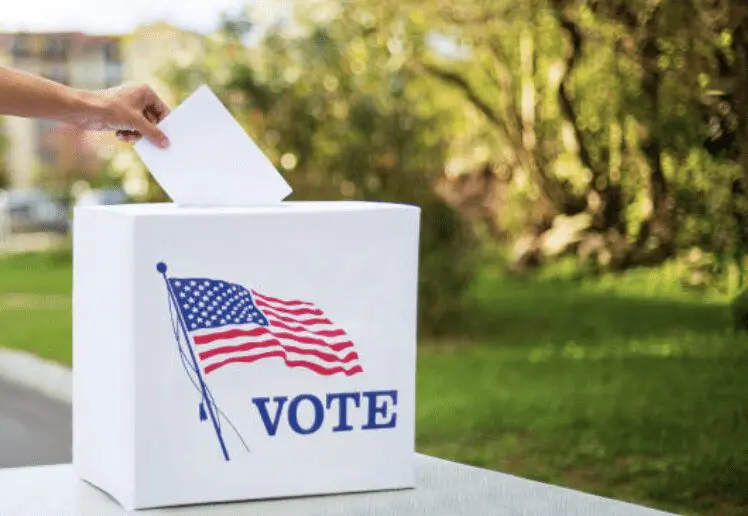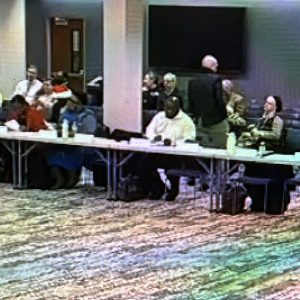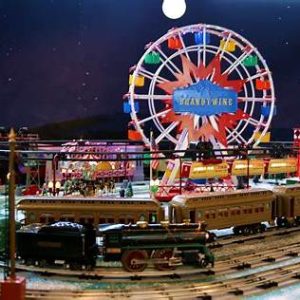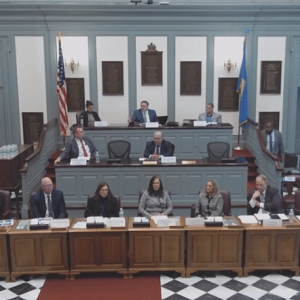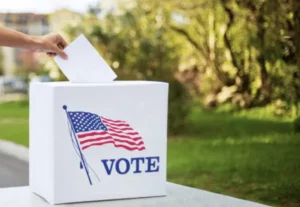
The Delaware Supreme Court said a lower court ruling cannot stand because the plaintiffs had no standing in the case.
The Delaware Supreme Court has thrown out a lower court ruling on absentee ballots in a unanimous vote, saying neither of the plaintiffs had standing to sue.
While Democrats celebrated the decision, Republicans pointed out that the decision said nothing about the merits of the case, which focused on whether the state director of elections could choose voting by machine or paper ballots.
Jane Brady, who sued on behalf of Rep. Gerald Hocker, R-Ocean View, as a candidate and Michael Mennella as an elections poll worker, said she was “a little” surprised at the ruling.
The decision cannot be appealed. If another suit is filed, it would have to start from scratch, Brady said.
The ruling comes with only one day left in the 2024 session of the Delaware General Assembly. The House and Senate will meet Sunday at 2 p.m. and will sign off for the year sometime that day.
The case rose from a law promulgated by Democrats in the General Assembly. They contended absentee ballots and other measures like early voting helped people who had a hard time getting to a poll to vote.
Republicans argued that absentee ballots and things like on-site voter registration were not secure, could lead to fraud and should be more stringently confirmed if used.
A Superior Court judge ruled in February that the new law was unconstitutional, setting up an appeal.
A press release from the Delaware Department of Elections said permanent absentee voting and early voting will be offered for the upcoming Sept. 10 state primary and Nov. 5 general elections.
It said Delaware votes have these options:
- Absentee Voting (if eligible, includes permanent absentee voting): Voters may use an absentee ballot if they are unable to appear at their assigned polling place on Election Day for reasons permitted by State law. Voters may apply for an absentee ballot at https://ivote.de.gov, or by completing and submitting an absentee ballot application available at https://de.gov/AbsenteeApp, or by calling the DOE at 302-739-4277 for an absentee ballot application to be sent to them.
- Early Voting at an Early Voting Site prior to Election Day: Voters may vote in-person at any Early Voting Site in their county of residence. Early Voting Sites and schedule are available at https://de.gov/votinglocations.
- Election Day Voting at Your Assigned Polling Place: Polls will be open from 7 a.m. to 8 p.m. Election Day. Voters’ assigned polling places are listed on their Polling Place Cards. Voters may call the DOE at 302-739-4277 or go to https://ivote.de.gov or https://de.gov/voteplaces to find their assigned polling place.
Response to absentee case ruling
Democrats on Friday were gleeful over the Supreme Court ruling.
“Enough of these thinly-veiled partisan attempts to suppress votes — especially of our most vulnerable citizens,” said Attorney General Kathy Jennings, who appealed the lower court ruling on behalf of Director of Elections Anthony Albence. “Whether you voted for me or not, this is your most fundamental right.”
In the last election, her release said, 56,000 Delawareans used early voting and roughly 21,000 — including veterans, the disabled, and caregivers — used permanent absentee ballots.
Delaware Senate Democrats issued a statement saying they were grateful for the ruling, and it would restore early voting and permanent absentee voting in time for the primary and general election.
“Voters never should have experienced this level of confusion about their voting rights, said the joint statement issued by Senate President Pro Tempore Dave Sokola, D-Newark, Senate Majority Leader Bryan Townsend, D-Newark, and Senate Majority Whip Elizabeth “Tizzy” Lockman, D-Wilmington.
“The Delaware General Assembly enacted early voting in 2019 and permanent absentee voting in 2010 with support from both Democrats and Republicans, including one of the plaintiffs in this case who co-sponsored the legislation that created permanent absentee voting 14 years ago,” their statement said. “That’s because there was once widespread agreement that Delawareans deserve options for how they can participate in our democracy.”
Republicans also responded Friday.
“The High Court sidestepped the core question of constitutionality by throwing out the lower court’s ruling on ‘standing,’ said House Minority Whip Lyndon Yearick, R-Camden/Wyoming), speaking on behalf of the House Republican Caucus. “As the justices explained, ‘standing’ simply determines who can bring a legal challenge, not the merits of the case.
IN THE NEWS: Here’s where and when to find Fourth of July fireworks
“This is frustrating because the constitutionality issue was our sole concern. We support early voting. In fact, immediately after the Superior Court issued its decision in late February, I introduced House Bill 320 to swiftly restore it. Senate Minority Leader Gerald Hocker, a plaintiff in this case, was also a prime sponsor of HB 320. However, the Democrat-controlled House Administration Committee stalled the bill for nearly four months without a hearing.”
Delaware Senate Republicans said their position has been consistent through the debate on the bills, its signing into law and into the lawsuit.
The Supreme Court ruling said Hocker did not have standing to challenge the law because he was not running a campaign at the time. The justices said Mennella had no standing because he had no particular harm. Neither had standing as a voter, they said.
Brady, a former chair of the Delaware State GOP and a former state attorney general, said she’s had several candidates call her and offer to serve as plaintiffs in a suit challenging the law.
She is not sure if she will file another case, she said Friday.
RELATED STORIES:

Betsy Price is a Wilmington freelance writer who has 40 years of experience, including 15 at The News Journal in Delaware.
Share this Post


